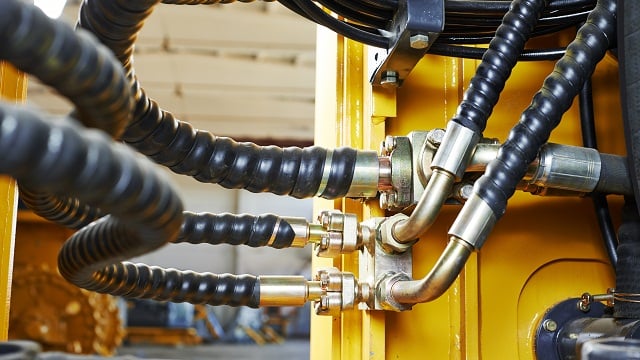Fluid power
Alfa Laval helps customers around the world to cool down and/or filtrate hydraulic oils and lube oils for maximum performance. Fluid power uses fluids or air under pressure to generate, control, and transmit power. Examples where we deliver: plastic industry, gearbox for wind power, power pack manufacturers, hydraulic presses, machines for paper industry and machine tool manufacturers.
The main components of a typical basic hydraulic system are: a pump, a valve and a hydraulic cylinder. The pump converts a small amount of mechanical power into hydraulic power, the valve controls the hydraulic oil flow and the hydraulic cylinder converts the hydraulic power into a large amount of mechanical power.
Why do hydraulic systems overheat?
Heating of hydraulic fluid in operation is caused by inefficiencies. Inefficiencies result in losses of input power, which are converted to heat. A hydraulic system’s heat load is equal to the total power lost (PL) through inefficiencies. If the total input power lost to heat is greater than the heat dissipated, the hydraulic system will eventually overheat. Installed cooling capacity typically ranges between 25 and 40 percent of input power, depending on the type of hydraulic system. The temperature of the hydraulic fluid should not exceed 180ºF (82ºC). At higher temperatures, the fluid may start to deteriorate, and the viscosity gets too low for reliable lubrication of pump and motor components. It is very important that the fluid remains clean, stays below 180ºF (82ºC), and contains no water (less than 150 ppm) to secure a long oil life-time.
Channel partners
Alfa Laval channel partners provide product expertise and excellent service with the goal to help you purchase the right product for your application.
Alfa Laval 360° Service Portfolio
To keep your equipment in top working condition, Alfa Laval offers a comprehensive portfolio of services.
Contact us to find out how we can extend the performance of your products.

